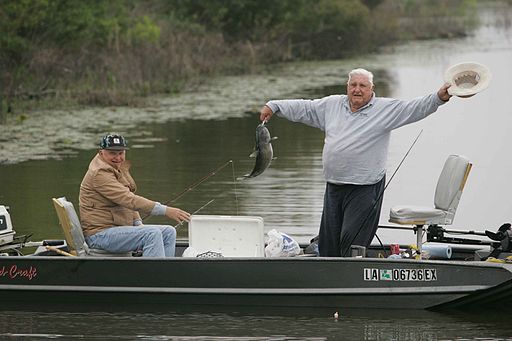Your mother or father might be influenced in making their estate planning decisions by information that they get from their lawyer, or their CPA, or their friends. Your brothers or sisters may throw their two cents into the decision-making about how things should be be distributed after both parents pass away.
Your elderly parent may live with a relative or caretaker and become very close with them. They may rely on a son or daughter or grandchild for love, care, and support as they are no longer able to care for themselves independently. Both parent and caregiver may be influenced, each by the other, in these living arrangements. In most families, family members get in each others business, right?
Influence isn’t always a bad thing. Seeking the counsel of others for an important decision, for instance, is wise. However, being influenced by others can be a bad thing when someone oversteps their bounds and successfully profits from it.
Undue influence is fraud. If proven to a probate court, the Last Will and Testament that resulted from this undue influence can be voided and tossed out. How things are distributed in the decedent’s estate at that point will depend upon the provisions of a prior will or the Florida intestacy laws.
When does influence become UNDUE and WRONG and the basis for voiding a Will?
In deciding whether or not to invalidate a challenged will based upon undue influence, the court will look at the evidence provided of conduct on the part of the testator (deceased parent) and the person alleged to be fraudulently influencing things. Part of that review will be the conduct of the people; another will be the will itself. How did the person suspected of undue influence profit from their fraudulent action? Or did they?
The personal representative of the estate that introduced the challenged will for probate will be expected to defend it as a legal party in the probate court proceeding. The person contesting the will on the basis of undue influence has to provide this evidence of wrongdoing (in the form of witnesses and documents).
Conduct that is considered undue influence over someone in the making of their will includes:
- Over-persuasion
- Duress
- Force
- Coercion
- Artful contrivances.
This conduct can occur without recourse unless it is successful in moving the testator to write the will as desired. For the will contestant to be successful, they also have to show:
- Free agency and Will power of the testator has been destroyed; and
- The resulting will is a product of the will of another, not that of the decedent.
Or, as one court explains, “When a will is challenged on the grounds of undue influence, the influence must amount to over persuasion, duress, force, coercion, or artful or fraudulent contrivances to such an extent that there is a destruction of free agency and willpower of the testator.” Raimi v. Furlong, 702 So.2d 1273, 1287 (Fla. 3d DCA 1997).
Case Example: Loving Granddaughter Isn’t Committing Fraud
Several years ago, a 90 year old woman passed away in Miami after living with her granddaughter here in South Florida for many years. In her Last Will and Testament, she let almost all of her estate to this granddaughter and nothing to her other two grandchildren. These two grandsons filed a will contest. They lost because they failed to meet their burden of proof of undue influence.
Evidence provided to the probate court did show that there was a “close bond” between the elderly woman and her granddaughter. Evidence was also entered into the proceeding that Grandmother had told her friends that she trusted her granddaughter and wanted to give her a power of attorney in case it was needed.
However, the probate court held that while there may have been a “confidential relationship” between the two, this doesn’t allow anyone to presume bad behavior or fraudulent influence. In this case there was absolutely no evidence of undue influence by the granddaughter.
Indeed, evidence was provided that: “… (a) the deceased selected the attorney to draft the will; (b) the attorney arranged the execution of the will and the audio-videotaping thereof; (c) decedent’s attending physician witnessed the execution of the will; (d) at the time of execution, decedent understood the extent of the estate and the object of her bounty; (e) the will and codicil were retained by the attorney; (f) the primary beneficiary (appellee) did not have possession of the will or codicil; (g) appellee had no knowledge of the contents of the will and codicil prior to decedent’s death.”
Do You Suspect Undue Influence in Your Parent’s Will?
If you think that your mother or father was a victim of undue influence, then your remedy is to file a lawsuit challenging the suspicious Last Will and Testament in court. A lawsuit has to be filed in order for justice to be done. You will have the burden of tracking down the evidence to prove your case. Will contests based upon undue influence are complicated; an experienced Florida probate lawyer to help you can be invaluable. Most probate lawyers, like Larry Tolchinsky, will offer a free initial consultation to review your case and answer your questions.
_______________
 Do you have questions or comments? Then please feel free to send Larry an email or call him now at (954) 458-8655.
Do you have questions or comments? Then please feel free to send Larry an email or call him now at (954) 458-8655.
If you found this information helpful, please share this article and bookmark it for your future reference.

